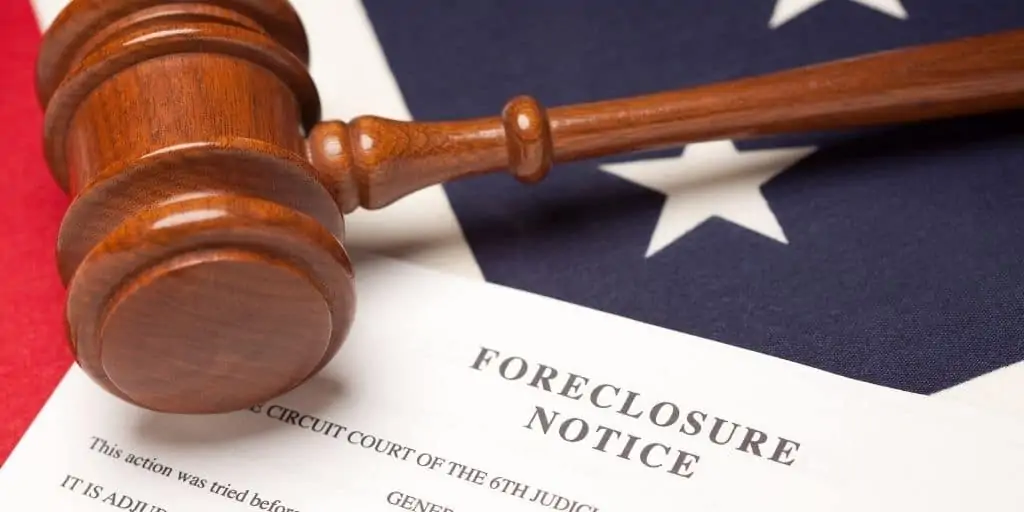What Is a Power of Sale?
REtipster does not provide legal advice. The information in this article can be impacted by many unique variables. Always consult with a qualified legal professional before taking action.
How Does a Power of Sale Work?
A power of sale is a provision in a loan instrument, such as a mortgage or deed of trust, where the borrower authorizes the lender (the mortgagee) to sell the property if the borrower defaults on the loan. The lender can repossess the property without having to go to court. The proceeds of the property sale will go toward paying off the remainder of the loan and any other fees associated with the mortgage[1].
About 30 states (called “non-judicial states”) allow the use of a power of sale clause in a mortgage.
However, the steps and requirements for using a power of sale clause vary from non-judicial state to non-judicial state. For example, in some states, the power of sale process can begin 15 days after a borrower misses a payment. Others won’t allow the process to start until after multiple months of missed mortgage payments by the borrower[2].
Lenders usually notify the borrower that they are selling the property to recoup their loss. Typically, borrowers have about 30 to 40 days to decide whether they can bring the mortgage back to good standing or pay off the entire mortgage balance[3].
Once the waiting period is over, a trustee will handle the process of selling the property. A deed of trust will be executed to give the trustee the authority to resell the property[4].
In a power of sale, the property is sold at fair market value. The sale proceeds are used to cover the total loan balance owed to the lender plus all other related expenses and fees. Any excess profits from the sale go to the borrower or former homeowner.
Can a Borrower Stop a Power of Sale?
A borrower may try to negotiate with the lender during the waiting or redemption period. Some lenders may require the borrower to repay the entire loan and the legal fees for filing the notice of sale.
Some borrowers talk to their lenders and try to get a new loan agreement for lower monthly payments. Others will choose to get a new loan to pay off the first mortgage and bring it back to good standing. Those who cannot afford a new loan may sell the property before the lender can take it[5]. This way, the borrower can avoid a power of sale and all the costs associated with the process.
Power of Sale vs. Judicial Foreclosure
In states where a power of sale is not allowed, the lender must go through a judicial foreclosure process, where the foreclosure goes through a court. In turn, the court will issue a demand for payment and give the borrower about 30 days or more to redeem the mortgage[6].
A judicial foreclosure typically starts after three to six months of missed payments by the borrower. The foreclosure process may take more than a year to complete[7].
In addition, the lender takes full ownership of the property and gets the title to the property[8] in a judicial foreclosure. The lender is also not required to sell the property at fair value or the highest price. The lender may choose to sell the property or rent it out. The lender will keep all proceeds and profits from the property sale at the end of the foreclosure process.
On the other hand, a mortgage with a power of sale clause has little to no involvement from the court. In some cases, it takes only six months to complete a power of sale.
Power of Sale Pros and Cons
Here are some of the benefits of a power of sale clause in a mortgage[9]:
- Lenders save more time because a power of sale is quicker than a judicial foreclosure.
- A borrower may file their own lawsuit and request a judicial review. A court is not necessarily involved in a power of sale process, but issues regarding the title or deed may arise and need to be resolved by the court.
- Borrowers may receive some proceeds from the sale. This happens when it exceeds the total of the mortgage debt and other fees that are owed to the lender.
Meanwhile, here are the drawbacks of a power of sale clause[10]:
- Some states do not allow deficiency judgments in a power of sale process. This means that the lender cannot hold the borrower liable for costs not covered in the sale.
- Borrowers who fail to pay their loans will lose their properties quickly. They may not have enough time to figure out if they can redeem their mortgage.
- Borrowers may file their lawsuit and challenge the power of sale if they feel they are being unfairly treated. The legal proceedings, however, are costly and time-consuming.
Sources
- Chen, J. (2022.) Power of Sale. Investopedia. Retrieved from https://www.investopedia.com/terms/p/power-of-sale.asp
- Steinberg, S. (2021.) What Is The Power Of Sale In A Mortgage Note, And How Does It Affect Foreclosure Proceedings? Rocket Mortgage. Retrieved from https://www.rocketmortgage.com/learn/power-of-sale
- Leavitt, L. (2021.) What Is Power of Sale? The Balance. Retrieved from https://www.thebalance.com/what-is-power-of-sale-5199348
- Araj, V. (2022.) Deed Of Trust: What It Is And How It Differs From A Mortgage. QuickenLoans. Retrieved from https://www.quickenloans.com/learn/deed-of-trust
- Mullowney.com. (n.d.) What You Can Do to Prevent, Delay, or Stop Power of Sale. Retrieved from https://www.mullowney.com/what-you-can-do-to-prevent-or-delay-a-power-of-sale/
- Campisi, N. (2020.) Foreclosure Basics: How It Works And What To Do To Keep Your House. Forbes. https://www.forbes.com/advisor/mortgages/foreclosure-basics/
- Zillow. (n.d.) What Is Foreclosure? Retrieved from https://www.zillow.com/foreclosures/overview/what-is-a-foreclosure/
- McManamon, P. (2022.) What Does Foreclosure Mean? InCharge Debt Solutions. Retrieved from https://www.incharge.org/housing/foreclosure-prevention/what-is-a-foreclosure/
- Loftsgordon, A. (n.d.) What Is a Power of Sale Foreclosure? Nolo. Retrieved from https://www.nolo.com/legal-encyclopedia/what-is-power-sale-foreclosure.html
- LegalMatch. (n.d.) Foreclosure by Power of Sale. Retrieved from https://www.legalmatch.com/law-library/article/foreclosure-by-power-of-sale.html










